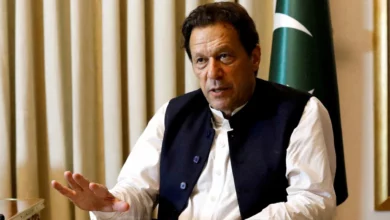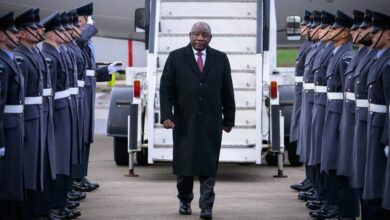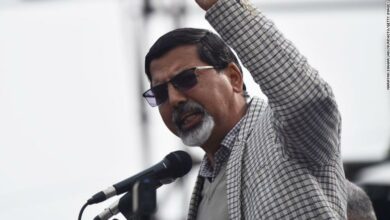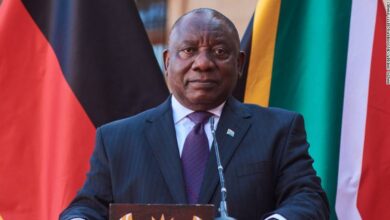Privately-owned Youm 7 newspaper interviews Hossam Eissa, a law professor at Cairo University and head of the committee investigating the misappropriation of public funds. Eissa explains that investigations continue on all fronts. The decision to freeze the Mubarak family's assets came quite late, said Eissa, citing 2009 documents proving the transfer of US$620 million from bank accounts in the UK to Switzerland. The former president’s official salary was LE24,000 per month, which makes an investigation of his huge wealth necessary. The real problem in retrieving the money is related to bank accounts in Arab countries that have not signed anti-money laundering agreements.
State-run Al-Ahram writes that Hosni Mubarak managed his wealth through secret bank accounts in Egypt, which held LE300 million plus US$147 million. Former first lady Suzanne Mubarak is accused of managing an account on behalf of the Bibliotheca Alexandrina that received US$142.5 million from foreign grants to the library.
Zakareya Azmy, presidential chief-of-staff, has been added to the list of people prevented from leaving the country, writes state-run daily Rose al-Youssef. Saudi prince and businessman Waleed Bin Talal is among those being investigated for illegally acquiring agricultural land through personal connections.
Attorney General Abdel Maguid Mahmoud announced that evidence is being collected now as the prince is expected to challenge the charges in international courts, writes privately-owned Al-Dostour.
Former Minister of Interior Habib al-Adly’s trial is scheduled for March 5. Al-Adly is facing charges of illicit enrichment and money laundering. Investigations into the security void and the shooting of protestors during the 25 January uprising continue, writes Al-Ahram. Al-Dostour writes that al-Adly denies any responsibility for violence against protestors and accuses his assistants and state security officers of giving him misleading reports. Al-Adly also hinted that Mubarak was aware of and approved all these disastrous decisions.
In an interview with privately-owned Al-Shorouk, Chancellor Mahmoud Abo al-Leil, a former minister of justice, speaks of the constitutional changes the formerly ruling National Democratic Party (NDP) pushed through to make fair presidential elections impossible. The former president's son Gamal Mubarak and other key NDP figures drafted article 76 without the Justice Ministry's participation, he said, adding that Mubarak’s decision to step down has no legal value and that the army came to power in accordance to constitutional article 180.
State-run al-Akhbar writes that the Mubarak regime was planning to destroy the Egyptian banking sector through the consolidation of the four public sector banks under a holding company to be managed by a leading NDP member of, according to Tarek Amer, head of the National Bank of Egypt. He said that Head of the Central Bank of Egypt Farouk al-Okda's threats to resign if the plan was implemented and go public with the information resulted in the plan's cancellation.
The Egyptian stock exchange is scheduled to reopen this Tuesday. However, investors are planning protests today as they think it should remain closed until investigations of Mubrak regime members and businessmen are completed. The Central Auditing Agency, whose head was appointed by the former president, is calling for independence, writes Al-Shorouk.
Meanwhile, educational institutions join the protests. On Sunday students returned to school for the first time since 25 January. Many high school students marched to Tahrir Square chanting the familiar slogan “The people want to oust the regime,” writes Al-Dostour. Universities will resume work next Saturday.
Al-Shorouk writes that the Faculty of Dentistry at Cairo University has created Facebook groups to call for the Dean's resignation and object to the appointment of key figures by national security. Student unions were dissolved and elections held for them within 60 days, writes al-Akhbar. The president of the university dismissed university guards appointed by the Ministry of Interior and will instead hire security guards in compliance with the ruling of the Supreme Administrative Court, writes Al-Dostour.
On sectarian fears, Sheikh Mohamed Hassan, a Salafi thinker, told Al-Gomhorriya that the second article of the Constitution–stating that Islam is the state's official religion–should stay and that it secures the rights of the Egyptian Coptic community. On his position on the participation of Salafis in political life, Hasan explained that the parliament will be having an increasing role in legislation and that Salafis should participate, while maintaining moderate views. The Muslim Brotherhood announced that it accepts Copts as members and leaders in the new Horreya party, writes al-Dostour. Al-Shorouk adds that Christians have confirmed their wish to be represented through constitutional and civil institutions rather than the Church.
In other news, Zahi Hawass, the Minister of State for Antiquities, tells Al-Akhbar that Egyptian monuments are still endangered. Mobs have been attacking and looting archaeological sites, while civilians destroy historical sites and build on surrounding lands.
Egypt's papers:
Al-Ahram: Daily, state-run, largest distribution in Egypt
Al-Akhbar: Daily, state-run, second to Al-Ahram in institutional size
Al-Gomhorriya: Daily, state-run
Rose al-Youssef: Daily, state-run, close to the National Democratic Party's Policies Secretariat
Al-Dostour: Daily, privately owned
Al-Shorouk: Daily, privately owned
Al-Wafd: Daily, published by the liberal Wafd Party
Al-Arabi: Weekly, published by the Arab Nasserist party
Youm7: Weekly, privately owned
Sawt al-Umma: Weekly, privately owned




